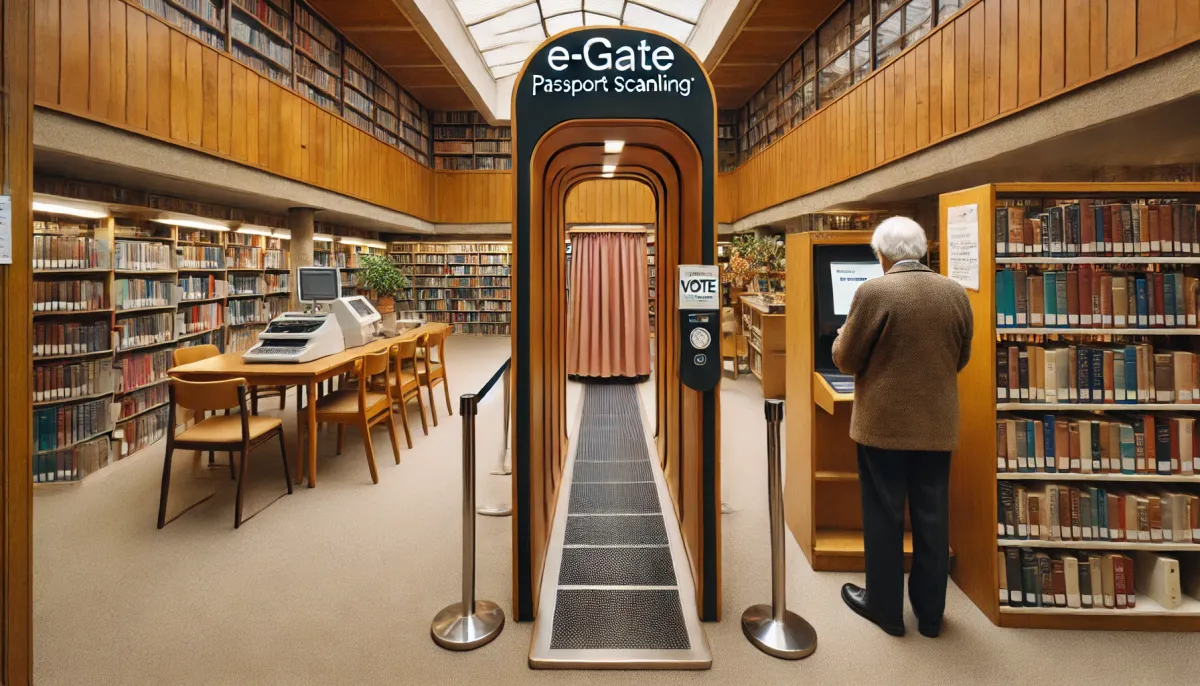Universal Voting
Democracy prides itself on empowering its citizens with suffrage - in a real time information environment, why hasn't democracy been increase and innovated?

POLICY
Democracy prides itself on empowering its citizens with suffrage - in a real time information environment, why hasn't democracy been increased and innovated?
Politicians in the UK believe it is their job to wield power to help you. I believe it is their job to create power and choice for you - using the power they wield. It's a simple big idea, but one you'll rarely find matched in government - even amongst those who consider themselves social.
We've just had a General Election in the UK where just 60% of the public turned out. The winner of the election swept to a landslide with just 20% of the adult voting public backing them.
Apathy? You bet. Many across the country will have voted for a party - such as Reform - out of protest. Every single voter knows that despite the great honour and magnitude of a vote - their day to day influence on society is limited.
It's time for that to change - you are not insignificant, you are equal - and in an age of Globalisation, it's even more critical that you have more day to choices and options to wield influence and power.
It's time for Universal Voting.
We saw the political class' panic after the Brexit referendum. Big single issue votes across the country are not only a huge media circus, but a distraction for the campaigning politicians. They happen so rarely - citizens being asked their view perhaps once a decade - that there's a broad assumption that one of the most literate and educated nations on Earth is incapable of having an opinion on anything more complicated than a rosette colour.
Having a power and using it are distinct - but far more preferable than not having a power you might wish to use.
Instead of innovating how they might both reduce that problem set and give you more power - politicians avoid it at all costs. It's far more preferable to keep and wield the power bestowed than sharing it - or risking it - by empowering citizens. They convince themselves that a rare vote is more potent and just as valuable. Is it? No.
Universal Voting would utilise e-gate technology and base itself predominantly at Libraries across the UK. Other venues like supermarkets and council buildings could also be used - even constituency offices. (Which might offer security or office consolidation benefits nationwide, too).
A simple software would host the local electoral register. A passport and facial recognition check would open the gate to a booth, which contained a screen with all the forthcoming votes their MP is set to participate in.
The citizen can then vote "as if" they are the MP.
Alternatively, the citizen could leave in place the "whip" that the MP has over them by their party - and select bigger polling topics to state opinions on.
- what should we spend on defence?
- do you believe in the monarchy?
- should we buy 100 starships and start a space colony? (indulge me! haha)
Dozens of topics could be polled - with total data eminence. Privacy could be guaranteed by using crypto tokens to anonymise the vote - if they wished.
This model scales. It sidesteps the total sham that is the polling industry - and finally gives every single citizen a safe, secure place to project influence and views. Knowing you had more chances to be heard - to be more than a tiny spec of data - would offer democratic contentment. Having a power and using it are obviously distinct - but far more preferable than not having a power you might wish to use.
Local MPs would not be "mandated" to follow votes – they'd be purely indicative - but every MP could begin to challenge their constituents to turnout and engage. For example, on issues they were agnostic about - the MP might offer a low turnout of, say, 55% - guaranteeing that they would follow the outcome of a vote before their own division.
The entire system of Universal Voting actually allows for MPs and future General Election candidates to "differentiate" from each other. How they choose to both strategically (as a party, perhaps) and tactically utilise the system is a pure democratic signal.
These kinds of signals and tactics would differ by candidate, party and constituency - but rest assured they'd be used. Meanwhile, a tidal wave of pure democratic data and indicative political pressure could be accumulated.
What if people don't vote or use it?
Wrong question - what if people DID. The present existence of apathy is not a sound reason to prevent this kind of democratic infrastructure. In fact, the very absence of this kind of personal choice and power may well be the very reason we have so much apathy.
In this Universal Voting model, the citizen holds the whip. They can either indicate that their MP may follow their own party line or rebel line - or they can override it with their personal preference.
Because each community is distinct, and has a local culture and a local need - vote turnouts across the country would be totally different on totally different issues. Some would align, and organised lobbyists and activists would have to take the average person more seriously - because in their own constituency, they'd have a big data point and say.
Chats down the school run, cafe, church, or pub are then less of a whinge but more of an ask, "oh, I was so annoyed, I went and Universal Voted - have you?".
Giving citizens power and the choice of when to use it is the ultimate form of democracy. We must trust people - and if these votes are indicative, we can.
You either believe people are equal or you just say it.
Prove it could work?
That's easy. Thales UK make the e-gates for our border control. Instead of scanning your passport or driving license to be let into the country - you're let into a private booth. In it is a chair, and a screen, and adverts sold in bulk location licenses to the media firms you see on the trains, buses and tubes. (That funds the running costs.)
The software within the tablet would know you'd been previously registered and had permission to vote.
A one time investment, with ad hoc software updates. The Electoral Commission and Parliament Clerks could jointly oversee the voting options - with select committee oversight.
Presto, you just got yourself more suffrage than every single British voters' cumulative suffrage combined for the last century.
Feel a bit more powerful? You will.
